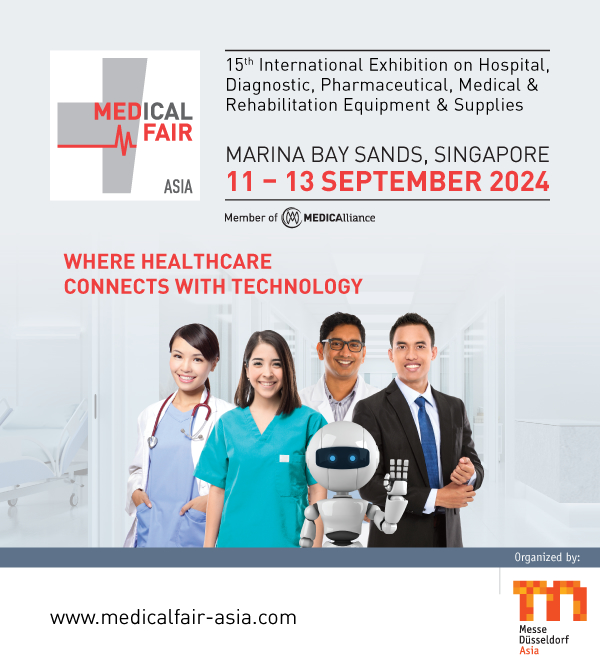



The MedTech scene in Asia Pacific (APAC) is thriving. Singapore’s MedTech ecosystem has also been steadily expanding. Today, Singapore is home to more than 60 multinational MedTech manufacturing, R&D and technology companies. According to Singapore government’s SGInnovation, the following are some of the key factors that have contributed to the accelerated pace of medical technology in Singapore.
Unlike other industries that experience rapid change, the MedTech industry has higher entry barriers and longer incubation periods- from product development to adoption and commercialisation. Adoption barriers are lower in Singapore because the country is home to many IT, electronics, and software companies.
Singapore now has more infrastructure and MedTech -specific intermediaries in place to support innovation. These provide early-stage incubation support and investments in MedTech start-ups, allowing them to accelerate technology development and commercialisation. Other infrastructure advantages include Singapore’s status as a global financial capital, ease of doing business, and growing prowess as a technology hub, particularly in artificial intelligence.
Government funding, academic expertise, a thriving start-up ecosystem, and support from legacy institutions all contribute to the expansion of Singapore’s MedTech industry. Singapore has been working hard to foster collaborations between public healthcare clusters and MedTech start-ups or SMEs. Given that many major healthcare clusters have clinical innovation teams, they serve as a platform for local MedTech companies to test their products in a hospital setting, allowing the products to be better positioned for downstream commercialisation and eventual adoption.
Singapore is seeing an increase in investor willingness to support early-stage start-ups in the industry, including those from outside Asia. Since the launch of SEEDS Capital, an investment arm of ESG and DxD Hub, the number of Singapore-based MedTech companies has increased by 250 percent in four years (2014-2018) to more than 250. More than half of them are start-ups. Since 2018, SEEDS Capital has co-invested more than S$90 million in over 20 MedTech start-ups.
SEEDS Capital and Advanced Medtech Holdings recently co-invested US$10 million in ABM Respiratory Care (ABM), a prominent company engaged in medical technology in Singapore, with the aim of developing novel integrated airway clearance and ventilation solutions.
SGInnovate named five new co-investors in April 2019 to focus on early-stage deep tech start-ups in a variety of fields, including MedTech. The government-owned investment firm has already invested S$40 million in approximately 70 local and foreign deep tech start-ups, which have since raised S$450 million in market funding.
MedTech firms are recognising that medical technology solutions must be developed in response to the needs of healthcare professionals and patients. To ensure that solutions can integrate with current workflows and lifestyles, design must be developed in collaboration with these key stakeholders.
User demographics such as age, technical know-how, and data accessibility are all important practical considerations for the adoption of smartphone and app-based healthcare solutions. Such insights indicate that Singapore’s MedTech scene is progressing, as these perspectives help make products more scalable and user-friendly.
In Singapore, wellness solutions are becoming more popular. Adoption is aided by the simplicity of these solutions, as well as the use of standard-issue devices such as smartphones and smartwatches. These devices not only count steps but also have sensors that detect heart rate and measure the intensity of the user’s activity.
The development and adoption of home-monitoring solutions, in which patients can track factors such as blood sugar, weight, and blood pressure without having to visit a clinic or take a lab test, has increased.
As the medical technology industry becomes more reliant on data, AI has become indispensable. This is reflected in global investment in healthcare AI companies, which totalled nearly US$1.6 billion in the third quarter of 2019. AI can be found in descriptive and predictive analytics, chatbots for wellness coaching, and imaging analysis in MedTech.
KroniKare, based in Singapore, uses an AI-enabled scanning device to provide near-instant, non-invasive assessment of chronic wounds. The device measures the wound and compares it to 15 years of chronic wound data using cutting-edge machine learning, image processing, and multi-modal data analysis. A report is generated for healthcare practitioners to use in determining appropriate treatments.
Singapore’s ‘Smart Nation’ initiative leverages digital technology advancements to create seamless, tech-driven experiences and its healthcare and MedTech manufacturing is no exception! All with one key goal in mind: to enable the success of its people and businesses in a digital world.